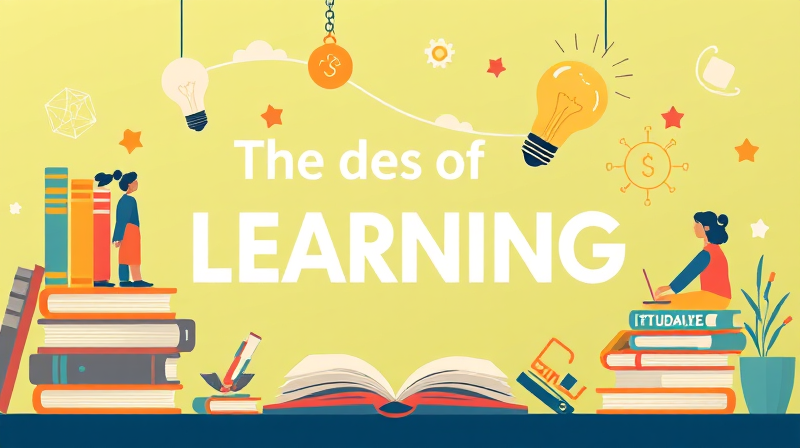In today’s rapidly evolving world, the ability to remember and understand information is not just an advantage, it is a necessity. Enhancing memory and comprehension is a journey that involves both mental and physical strategies. In this article, we explore a variety of techniques designed to boost your cognitive abilities and help you excel both personally and professionally.
Active Learning Strategies
Active learning puts you in the driver’s seat of your educational journey. Instead of passively absorbing information, you become an active participant in the process. This approach involves engaging directly with material, which leads to a deeper and longer-lasting understanding.
Engage with the Material: Transforming passive reading into active interaction is one of the most powerful methods for retaining information. Try participating in discussion groups or integrate hands-on practice to make connecting with the material more engaging. These interactions can turn abstract concepts into concrete ideas that stick in your memory.
Teach Others: Sharing what you have learned not only benefits those around you but also solidifies your own knowledge. Explaining complex ideas in your own words forces you to organize the information coherently, which often results in deeper insights and better long-term recall.
Self-Testing: Challenging yourself with mock tests or peer quizzes can drastically improve retention. Self-testing exposes areas that need improvement and helps in overcoming the false confidence gained by mere re-reading. This method reinforces learning by testing your ability to retrieve information on demand.
Memory Techniques
There are several specialized techniques that can help you remember even the most challenging information. By employing methods such as mnemonics, chunking, and the memory palace, you can create strong associations that make recall easier.
Use Mnemonics: Mnemonics are a fun and effective way to remember details. Creating acronyms, acrostics, or rhymes can simplify complex subjects. For example, the acronym "ROY G. BIV" is widely used to remember the colors of the rainbow, associating each letter with a color in a memorable way.
Chunking Method: Instead of tackling large amounts of data at once, break the information into smaller, manageable chunks. This method is especially useful for memorizing lists or sequences, where information is grouped into smaller units, making it easier for your brain to process and recall later.
Memory Palace Technique: This technique leverages your visual and spatial memory. Visualize a familiar place and imagine placing different pieces of information in specific locations within that space. This mental mapping creates an effective recall system, particularly when trying to remember unrelated items.
Sensory Engagement and Note-taking
Engaging multiple senses during the learning process can significantly enhance your ability to retain information. The more senses you involve, the more points of memory you create.
Utilize Multiple Senses: When studying, try to incorporate visual, auditory, and kinesthetic elements. Reading aloud, drawing diagrams, or even using tactile objects can activate multiple parts of the brain, leading to improved memory retention.
Write It Out: Taking handwritten notes can create a stronger connection between the physical act of writing and the internalization of information. This connection often results in better comprehension compared to typing on a computer.
Speak Aloud: Vocalizing the material by speaking it out loud engages your auditory system as well as your verbal processing skills. This dual coding of information reinforces learning and speeds up the recall process.
Lifestyle Factors
Optimal brain function is influenced not only by the techniques you use when studying but also by your overall lifestyle choices. Incorporating healthy habits can create a solid foundation for cognitive enhancement.
- Regular Exercise: Engaging in physical activity, especially aerobic exercise, can increase the size of the hippocampus—the area of the brain critical for memory and learning. Regular exercise isn’t just beneficial for your body; it is equally important for nurturing a healthy mind.
- Adequate Sleep: Sleep plays a crucial role in the consolidation of memory. Aim for 7-9 hours of sleep per night to ensure that the knowledge you have gained is adequately stored in your long-term memory.
- Mindfulness Practice: Incorporating mindfulness and meditation into your daily routine can significantly improve concentration and memory performance. Taking the time to be present reduces stress, which in turn helps your learning abilities flower.
Nutritional Considerations
What you eat can have a profound impact on cognitive functions. Optimizing your diet can give your brain the essential nutrients it requires for peak performance.
Omega-3 Fatty Acids: Foods rich in omega-3, or DHA and EPA, are vital for maintaining brain health. Including fish or fish oil supplements in your diet can bolster memory and cognitive function.
Limit Added Sugar: A high intake of added sugars is detrimental to brain health, often leading to reduced brain volume and impaired cognitive abilities. A balanced diet that minimizes sugary foods and beverages will help protect your memory in the long run.
By incorporating these techniques and lifestyle changes into your daily routine, you create a synergistic effect that amplifies your cognitive abilities. This structured approach to learning and memory can be the catalyst for positive change in several areas of your life.
Remember, consistency is the key to success. The more frequently you engage with these practices, the more natural they become. Whether you are a student, a professional, or simply someone looking to enhance your mental agility, these methods offer a practical framework to build a robust memory and deeper understanding.
If you commit to these strategies, you are not only preparing your brain for success but also empowering yourself to navigate life’s complexities with resilience and clarity. Each small step builds upon the last, ultimately leading to a brighter, more successful future.
Embrace these methods with enthusiasm, and let your cognitive journey be defined by learning, growth, and an unwavering commitment to excellence.








